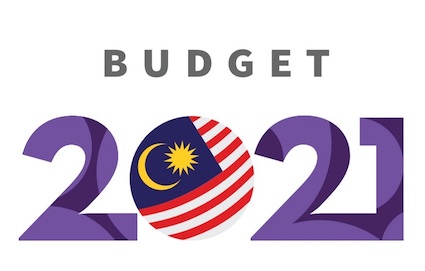Budget overly optimistic, fails to address key issues, say economists

(FMT) – Some economists see Budget 2021 as being more aspirational than realistic, pointing out that certain key issues have not been addressed to steer the nation to effective recovery from the impact of Covid-19.
Among them are the absence of plans to institute fundamental reforms in government-linked companies (GLCs), measures to boost investment, insufficient cash aid to the needy and lack of proper plans and funds to prepare the workforce as many companies move into automation.
Centre for Market Education Malaysia CEO Carmelo Ferlito said the government was overly optimistic in its forecast of an economic growth of 6% to 7% next year.
“It is only achievable if we are free of Covid-19 tomorrow and the borders are reopened. Otherwise, it is just a dream,” he told FMT.
Ferlito said despite the RM322.5 billion expenditure being the highest in the country’s history, it lacked direction in its overall growth for the country as Malaysia was still looking at containing Covid-19 instead of moving into the recovery stage.
“The budget has also missed opportunities to put policies in place that will benefit the country, such as reforming GLCs, liberalising the labour market to attract foreign investors and cutting bureaucratic processes for foreign investors to do business in Malaysia.
‘Hiring 50,000 in civil service will lead to over-staffing’
“Instead, the government wants GLCs and the civil service to hire another 50,000 people next year,” he said, adding that it may lead to over-staffing like what happened to Malaysia Airlines several years ago.
“How long are they going to go on creating jobs? If these people could not get a job, that means they are not in demand.”
Another economist, Barjoyai Bardai of Universiti Tun Abdul Razak , said the operating expenditure of 73% in the budget was way too high.
“The government’s expenditure has kept going up and it would need additional money to administer the civil sector,” he said, referring to the administrative budget that has gone up 2% compared with last year.
“The budget also shows the government has some constraints in its cash flow as it has to borrow 26% of the total budget. This shows the government has exhausted its revenue,” he told FMT.
Bardai was disappointed that there were insufficient allocations for retraining and reskilling of the Malaysian workforce which was being threatened by automation, adding that many workers would be made redundant in the process.
“I was hoping Putrajaya would spend at least RM20 billion to prepare the workforce for Industrial Revolution 4.0 as many companies move into automation,” he said.
On the various cash handouts announced in the budget, Bardai believed the amounts were inadequate and that the government would definitely be required to pump in more cash to help the lower-income group next year.

